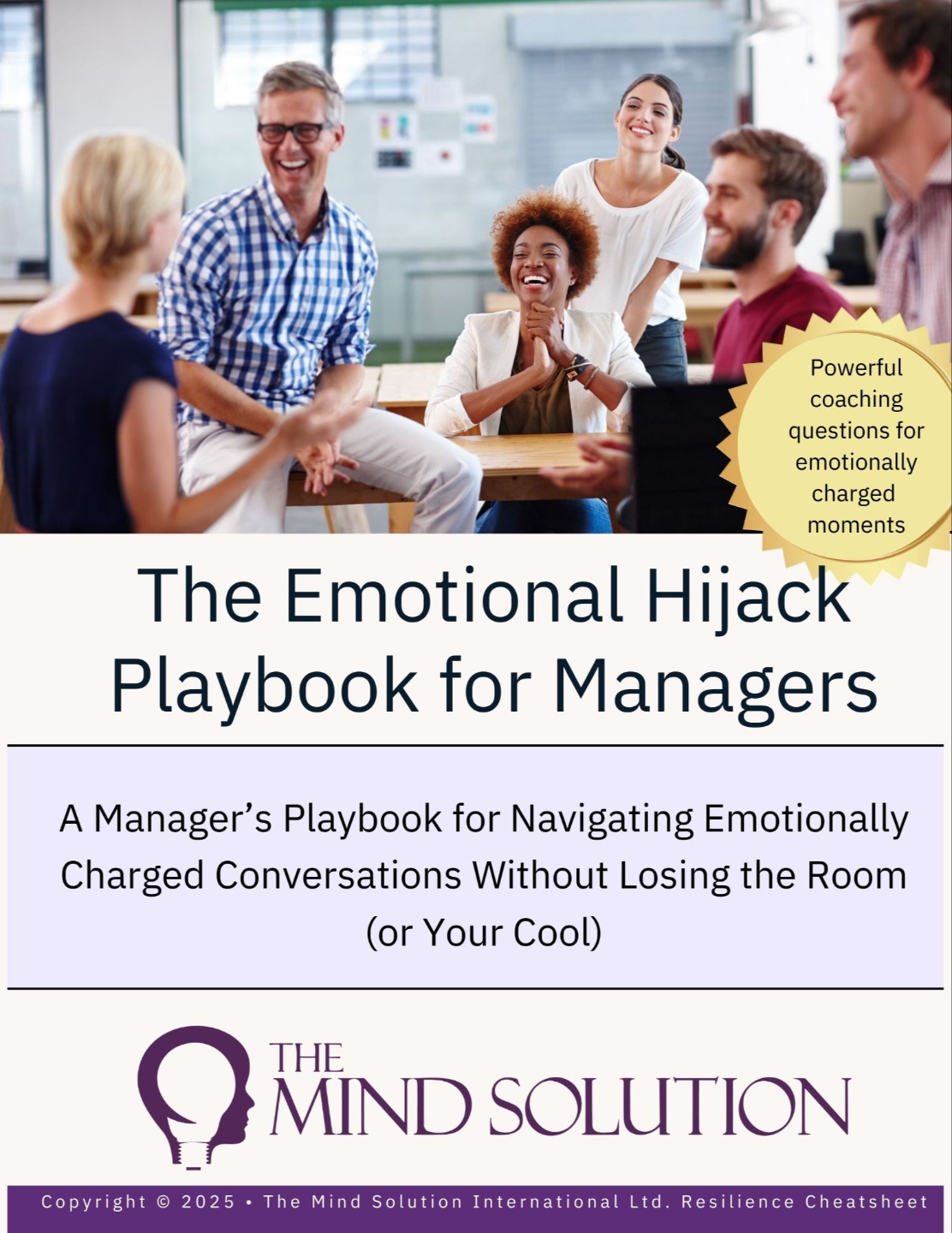Why We Need to Stop Focusing on Leadership Behaviour
Aug 18, 2025
How to Achieve High Performance at Work
When most organisations talk about high performance and leadership development, the focus tends to be on skills, competency, and expertise. And yes, those matter. They can be taught, measured, and refined.
For decades, leadership development training has zeroed in on behaviour: how leaders communicate, delegate, motivate, or deliver feedback. The assumption has been that if you fix the behaviour, you fix the performance.
But here’s the truth: it isn’t enough to focus solely on behaviour.
Because behaviour is only the surface. If you want true leadership, you have to understand what drives behaviour in the first place, and that means starting with self-awareness.
If you’re not aware of something, you can’t change it.
That’s where many leadership programmes fall short. They don’t give leaders the tools to see themselves clearly, to understand their own patterns of thought, belief, emotional responses, and behaviours. Without that, you can’t raise levels of consciousness, and without that rise in consciousness, you can’t create sustainable change.
Why Leadership Development Is Important
Let me give you an example.
When I worked for Virgin Atlantic, the company had invested tens of thousands of pounds in a two-day leadership development course. I was supporting one of the Commercial Directors at the time, and each Monday morning, I’d join his team meeting.
Every week, without fail, he’d start by reading out the latest sales figures and yields, and it was never good news. Within minutes, the energy in the room would plummet, and people would visibly slump in their chairs.
No check-in. No human connection. No recognition of how people were feeling after the weekend.
By the third week, I stayed behind and said to him:
“It’s a good job the windows in here don’t open.”
When I explained the impact his meetings were having, a light bulb went off. He’d never realised it until I held up a mirror.
And here’s the point: despite the expensive leadership programme, there had been zero shift in his self-awareness. His behaviour was exactly the same, because he’d never been given the insight into what was driving it.
This is why leadership development matters, but only when it goes beyond surface-level behaviour change. Leaders who understand their own patterns can make intentional shifts that transform not only their performance, but the culture and wellbeing of their teams.
Which Leadership Style Is the Most Effective?
If you search Amazon for books on leadership style, you’ll find hundreds. Directive, democratic, transformational, servant leadership — the list goes on.
But here’s the reality: there is no single “most effective” leadership style.
The leaders I’ve seen succeed aren’t the ones who perfectly match a textbook style. They’re the ones who are self-aware, emotionally intelligent, and able to regulate themselves in the moment.
That means they know:
-
How they’re coming across.
-
What triggers them.
-
How to recover when they get it wrong.
-
How to create psychological safety for others.
If you’ve done your inner work, if you understand your own thought patterns and emotional responses, you can adapt your style to the needs of your people without losing your authenticity.
Which Leadership Style Is Best?
For me, the “best” style is conscious leadership.
Conscious leaders are aware of how they are showing up, moment to moment. They know that every interaction sends a signal, and they take responsibility for the signals they’re sending.
In our Mental Health Training for Managers, we ask leaders:
“What signals are you sending to your people?”
Often, it’s the first time they’ve ever stopped to consider it.
This level of awareness is crucial because many leaders are promoted for their technical skills, not their people skills. I’ve worked alongside HR leaders who were technically brilliant and yet domineering, bullying, manipulative, and lacking in empathy.
Without self-awareness, leaders operate from fear, defensiveness, and ego, like the bank director I coached, who told me that in board meetings, plenty of her peers would “throw people under a bus” to save themselves.
That’s not a style problem. That’s a consciousness problem.
How Leadership Skills Can Be Developed
Yes, leadership skills can be taught, but they need to be taught in the right state of mind.
If a leader is burnt out, fatigued, and running on survival mode, their brain isn’t in an optimal learning state. You can put them in a two-day training course, but very little will stick.
Development has to start with regulation — calming the mind, quieting the amygdala (the brain’s internal smoke alarm), and creating space for reflection.
Once leaders are in that state, here’s what works:
-
Understanding what drives behaviour — so they can change it from the inside out.
-
Longer-term programmes — not just a one-day course, but ongoing learning that allows time for reflection, processing, and insight.
-
One-to-one coaching — because every leader’s reality is shaped by their own perceptual filters. Coaching personalises the learning, creating a deeper transformation.
When leaders grasp that their experience is thought-generated, they stop looking outside themselves for the cause of their feelings. They stop blaming circumstances and start taking ownership.
And that’s when you get leaders who are empathetic, compassionate, and emotionally intelligent — the very qualities employees are crying out for.
In fact, research from DDI’s Global Leadership Forecast found that empathy is now the most critical driver of overall leadership performance, with 92% of employees saying they would be more likely to stay with a company if their leaders were empathetic.
Summary
We don’t need more leaders who have memorised a set of behaviours. We need leaders who understand themselves as leaders who are conscious, self-aware, emotionally intelligent, and able to adapt in the moment.
That’s how you create high performance that lasts.
If you want to equip your HR leaders with the tools to raise their self-awareness, build emotional intelligence, and lead from a place of conscious impact, join us for HR Alchemy — our two-day immersive programme for HR teams.
You’ll leave with:
- Deep listening skills – so leaders truly understand their people, make better decisions, and create a culture where employees feel valued and heard.
- Coaching skills – so leaders can unlock hidden potential in their teams, inspire growth, and drive performance without micromanaging.
- Emotional regulation – so leaders remain calm and resourceful under pressure, setting the tone for a resilient, solutions-focused workplace.
- Heightened self-awareness – so leaders can recognise their own patterns, shift unhelpful behaviours, and lead with authenticity and confidence.
- Empathy in action – so leaders build trust, strengthen relationships, and foster loyalty across the organisation.
- Conscious communication – so every interaction moves the business forward and reduces conflict, confusion, and wasted time.
Click here to book your HR Alchemy consultation today and start creating leaders who inspire, connect, and perform at the highest level.
The Emotional Hijack Playbook For Managers
A Manager’s Free Resource for Navigating Emotionally Charged Conversations Without Losing the Room (or Your Cool).
Perfect to use in your next one-to-one.







